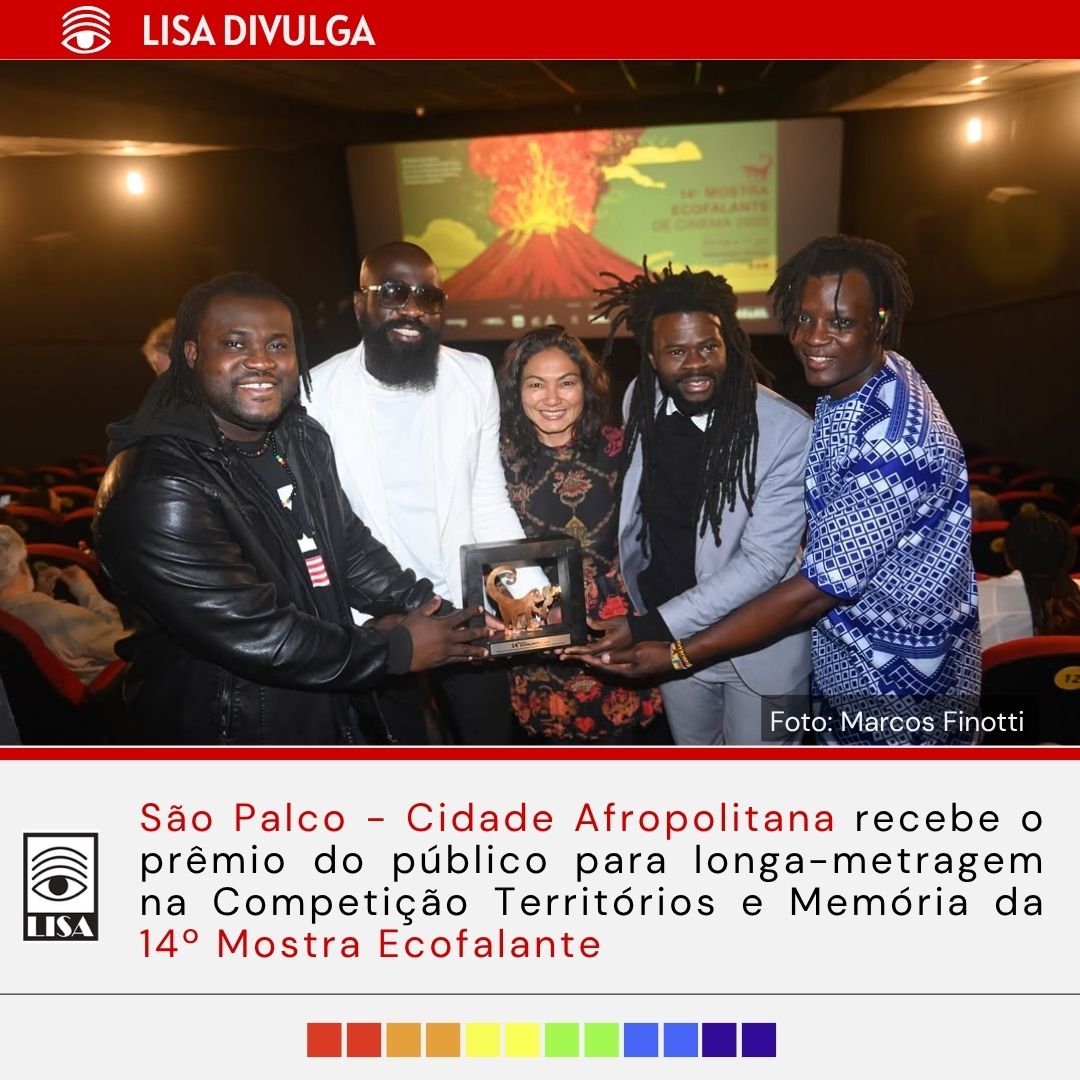"São Palco - Afropolitan City" received the audience award for feature film in the Territories and Memory Competition of the 14th Mostra Ecofalante, the most important South American event for audiovisual production linked to socio-environmental issues. The award ceremony took place on the evening of June 8, 2025, at Reserva Cultural in São Paulo
The trophy presented by Hermano Penna, the filmmaker honored at the 14th Mostra, was circulated among the protagonists present at the event: Shambuyi Wetu, Sassou Espoir, Edoh Fihon, Yannick Delass and Rose Satiko Hikiji, co-director of the film and professor at the Department of Anthropology at USP. Afro-diasporic art gains another stage, this time in the cinema.
Produced by the Laboratory of Image and Sound in Anthropology (LISA-USP), the film questions and reflects on what African artists who have arrived in Brazil in recent years carry with them on their journey? How do the African diasporas – the new creative diaspora and the one that has turned the Atlantic into a cemetery – interact? What stages are occupied, built, and filled with the performances of artists who have crossed the ocean? Ancestralities are updated in performances that construct an Afropolitan present in a metropolis where it is necessary to be bold and color the gray. "São Palco – Cidade Afropolitana" presents the city of São Paulo as a meta-stage occupied by artists from Togo, Mozambique, the Democratic Republic of Congo, and Angola, among other African nations, in dialogue with the Brazilian population and its openings, contradictions, and tensions.
Directed by Jasper Chalcraft and Rose Satiko Gitirana Hikiji, the feature film is the result of the research "Being/becoming African in Brazil: Making music and African cultural heritage in São Paulo", carried out by the film's directors in conjunction with the thematic project supported by FAPESP "Local music: new trails for Ethnomusicology", which aimed to think about the meanings of music making for a new and growing generation of African immigrants in Brazil, specifically in São Paulo (https://afrosampas.org/). Since 2015, researchers have observed how African music making in São Paulo creates worlds of imagination and political potential, spaces for solidarity, inhabited by African and Afro-diasporic entities from past and present history, anti-colonial, anti-slavery and Afropolitan struggles and artistic manifestations (Mbembe, 2015). "São Palco - Cidade Afropolitana" follows some of the artists and musicians who have arrived in the country in the last decade, observing their work in the city of São Paulo, their relationship with the country's racial and cultural policies, with cultural institutions and social movements. They are stages in activist or solidarity events, they are occupied and built stages, they are acts of resistance and existence.
Photos by Marcos Finotti



.jpg)
.jpg)
.jpg)

